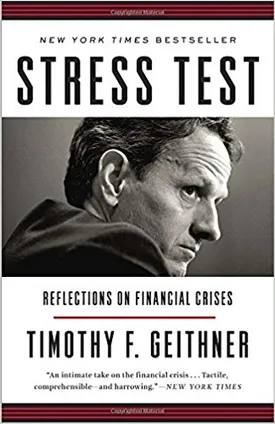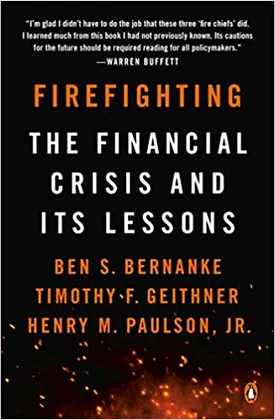Timothy Geithner
Timothy F. Geithner is a renowned American government official and economic policy expert who served as the 75th United States Secretary of the Treasury from 2009 to 2013. Born in Brooklyn, New York to Karen and Peter Geithner in 1961, Geithner’s interest in public service and improving economic policy was developed early in life after his father worked as a partner of the Ford Foundation’s Asia program. After graduating from Dartmouth College in 1983, Geithner went on to study East Asian Studies at the Paul H. Nitze School of Advanced International Studies at Johns Hopkins University. After working briefly for the State Department, he went on to join Henry Kissinger’s International Affairs consulting firm.
Tim Geithner went on to work for the U.S Treasury Department from 1988 to 2001, and during this time Geithner worked to implement provisions of the North American Free Trade Agreement. He also helped successfully to manage the financial crises of the late 1990s and early 2000s. He chaired a working group on financial stability in 1998 and also served as the Under Secretary of the Treasury for International Affairs from 2001-2003. During that time Geithner reunited roles of several agencies involved in drafting economic policy to give the U.S. greater international clout, and his work during this period earned him a prestigious promotion to president of the Federal Reserve Bank of New York in 2003.
As 10th president of the Federal Reserve Bank of New York, Geithner became a key advisor to chairman Alan Greenspan and was responsible for overseeing Wall Street, which entailed monitoring the banks, brokerage firms, and other financial institutions within the district. He also worked on the Lehman Brothers meltdown and the TARP bailout program that was put in place during the financial crisis of 2007-2008.
In 2008, Geithner was asked by President-elect Barack Obama to become his Treasury Secretary, to which he accepted. He initially served as part of the auto-industry rescue package, which included the infamous Troubled Assets Relief Program and the restructuring of troubled automakers General Motors and Chrysler. Geithner went on to serve as Secretary of the Treasury for the entirety of the Obama presidency, during which time he implemented major financial reforms, including the Dodd-Frank Wall Street Reform and Consumer Protection Act. Other economic policy measures implemented by Geithner during this period included public-private partnerships with respect to mortgage relief, an overhaul of consumer banking regulation, and the bolstering of financial system oversight with the Too Big To Fail policy aimed at making sure that no large firm would be bailed out again.
Since leaving office in 2013, Geithner was named as the president and CEO of the private firm Warburg Pincus, a global private equity firm. He recently also released his first book, Stress Test: Reflections on Financial Crises, which has been highly-acclaimed by both the public and experts alike. In his book, Geithner looks back on his time during the Great Recession, when he played a crucial role in avoiding the biggest financial meltdown since the Great Depression. He offers candid anecdotes and a behind-the-scenes account of some of his most important decisions during the financial crisis and offers an intimate, insightful look into the way economic policy is made in the 21st century.
In light of his career, Geithner has been widely praised as one of the most knowledgeable economic experts of our time. His commitment to public service and dedication to financial reform has been lauded, and his influence in dealing with the global financial crisis is still seen today. With the release of his book, Stress Test: Reflections on Financial Crises, Geithner has offered the public a rare insight into the reality of his time as Treasury Secretary and his reflections on the decisions he made during one of the most trying times for financial markets in modern history.


